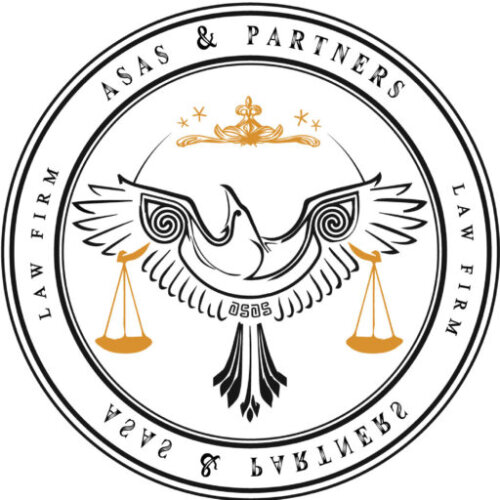Best Restructuring & Insolvency Lawyers in Cairo
Share your needs with us, get contacted by law firms.
Free. Takes 2 min.
List of the best lawyers in Cairo, Egypt
About Restructuring & Insolvency Law in Cairo, Egypt
Restructuring and insolvency law in Cairo, Egypt, is focused on helping financially distressed businesses and individuals manage their obligations, rehabilitate their financial standing, or, when necessary, formally resolve debts through regulated processes. The law provides structured frameworks to protect the interests of creditors and debtors while promoting fair and efficient solutions. The Egyptian government has modernized its insolvency regime in recent years, aligning it with international standards and supporting economic stability.
Why You May Need a Lawyer
There are several situations in which you may require legal assistance regarding restructuring or insolvency in Cairo:
- Advising troubled businesses - When a business faces difficulty meeting its financial obligations, legal counsel can help explore restructuring options.
- Filing bankruptcy or insolvency proceedings - Filing under the relevant laws often requires specialized legal knowledge and careful documentation.
- Negotiating with creditors - Lawyers can assist in negotiating with banks, suppliers, and other creditors for payment rescheduling and settlements.
- Asset protection - Legal advice is vital for understanding rights to property and measures to safeguard assets during financial hardship.
- Challenging insolvency claims - Legal representation is often necessary for defending against claims or challenging bankruptcy petitions filed by others.
- Recovering debts - Creditors may need legal help to recover outstanding debts or participate in insolvency proceedings.
Legal guidance ensures that your rights are protected, compliance with local laws is maintained, and that you can achieve the most favorable outcome during financial distress.
Local Laws Overview
In Cairo, the main legislation governing restructuring and insolvency is the Law on Restructuring, Preventive Reconciliation, and Bankruptcy (Law No. 11 of 2018). This law introduced significant reforms, creating new mechanisms for the restructuring of distressed businesses and simplifying bankruptcy proceedings. It established specialized bankruptcy courts and outlined specific procedures for preventive reconciliation, restructuring, and liquidation.
Key features of the local legal framework include:
- Structured procedures for preventive reconciliation, restructuring, and liquidation of companies facing insolvency.
- Appointment of court-approved trustees to oversee insolvency cases and ensure fair treatment of all stakeholders.
- Mechanisms to protect debtor assets and ensure that claims are properly addressed.
- Encouragement for out-of-court settlements and negotiations between debtors and creditors.
- New protections for honest debtors, such as the ability to restructure and continue operations under court supervision.
- Penalties and restrictions for fraudulent activities or misuse of the insolvency process.
Egypt’s approach seeks to balance creditor recovery with debtor rehabilitation, reflecting global best practices and improving the business environment.
Frequently Asked Questions
What is the difference between restructuring and insolvency?
Restructuring refers to reorganizing the financial structure of a business to restore profitability and avoid insolvency. Insolvency occurs when a person or company is unable to meet its debt obligations and may involve legal proceedings such as bankruptcy or liquidation.
Who can file for bankruptcy in Cairo, Egypt?
Both individuals and companies can file for bankruptcy under the local insolvency law if they are unable to pay their debts as they become due.
What is preventive reconciliation?
Preventive reconciliation is a legal tool that allows financially distressed debtors to negotiate with creditors under court supervision to reach an agreement before formal bankruptcy is declared.
How long does the insolvency process typically take?
The duration of insolvency proceedings depends on the complexity of the case, the assets and liabilities involved, and the willingness of stakeholders to cooperate. It can range from several months for straightforward cases to years for more complex matters.
Can a company continue operating during restructuring or insolvency proceedings?
In many cases, yes. Egyptian law provides for the possibility of continued operations under court-supervised restructuring, aiming to rehabilitate the business and preserve its value.
What happens to the employees of a company undergoing insolvency?
Employees are considered creditors in insolvency. Their claims, including unpaid wages, are prioritized during proceedings, but outcomes vary depending on the company’s financial status and the terms of the restructuring or liquidation.
Are directors or managers personally liable for company debts?
Generally, company directors and managers are not personally liable for debts unless there is evidence of fraud, intentional misconduct, or gross negligence leading to insolvency.
Can creditors initiate bankruptcy proceedings?
Yes, creditors who are owed significant debts may apply to the bankruptcy courts to initiate proceedings against a debtor suspected of insolvency.
What is the role of a bankruptcy trustee?
The bankruptcy trustee is appointed by the court to manage the debtor’s assets, investigate claims, facilitate negotiations, and oversee the fair distribution of assets among creditors.
Is it possible to challenge insolvency decisions made by the court?
Yes, parties involved in insolvency proceedings can appeal certain decisions or actions, in accordance with procedure set by Egyptian law.
Additional Resources
If you require information or assistance regarding restructuring and insolvency in Cairo, consider these key local resources:
- Egyptian Bankruptcy Courts - Specialized courts established by Law No. 11 of 2018 handle all related proceedings.
- General Authority for Investment and Free Zones (GAFI) - Provides support and guidance to investors and companies facing financial challenges.
- Ministry of Justice - Contains information on insolvency legislation and court procedures.
- Egyptian Banking Institute - Offers educational resources on financial health, debt management, and restructuring options.
- Legal aid organizations or professional legal associations in Cairo - May provide consultations or referrals to qualified lawyers with experience in restructuring and insolvency.
Next Steps
If you or your business are facing financial difficulties or are considering restructuring or insolvency options in Cairo, it is essential to seek timely legal advice. Start by collecting all relevant financial documents, contracts, and correspondence with creditors. Consult with a qualified lawyer who has experience in Egyptian restructuring and insolvency law. The lawyer can assess your specific circumstances, explain your options, guide you through local procedures, and represent your interests in court or negotiations. Acting promptly and with professional help increases your chances of achieving the best possible outcome.
Lawzana helps you find the best lawyers and law firms in Cairo through a curated and pre-screened list of qualified legal professionals. Our platform offers rankings and detailed profiles of attorneys and law firms, allowing you to compare based on practice areas, including Restructuring & Insolvency, experience, and client feedback.
Each profile includes a description of the firm's areas of practice, client reviews, team members and partners, year of establishment, spoken languages, office locations, contact information, social media presence, and any published articles or resources. Most firms on our platform speak English and are experienced in both local and international legal matters.
Get a quote from top-rated law firms in Cairo, Egypt — quickly, securely, and without unnecessary hassle.
Disclaimer:
The information provided on this page is for general informational purposes only and does not constitute legal advice. While we strive to ensure the accuracy and relevance of the content, legal information may change over time, and interpretations of the law can vary. You should always consult with a qualified legal professional for advice specific to your situation.
We disclaim all liability for actions taken or not taken based on the content of this page. If you believe any information is incorrect or outdated, please contact us, and we will review and update it where appropriate.
















